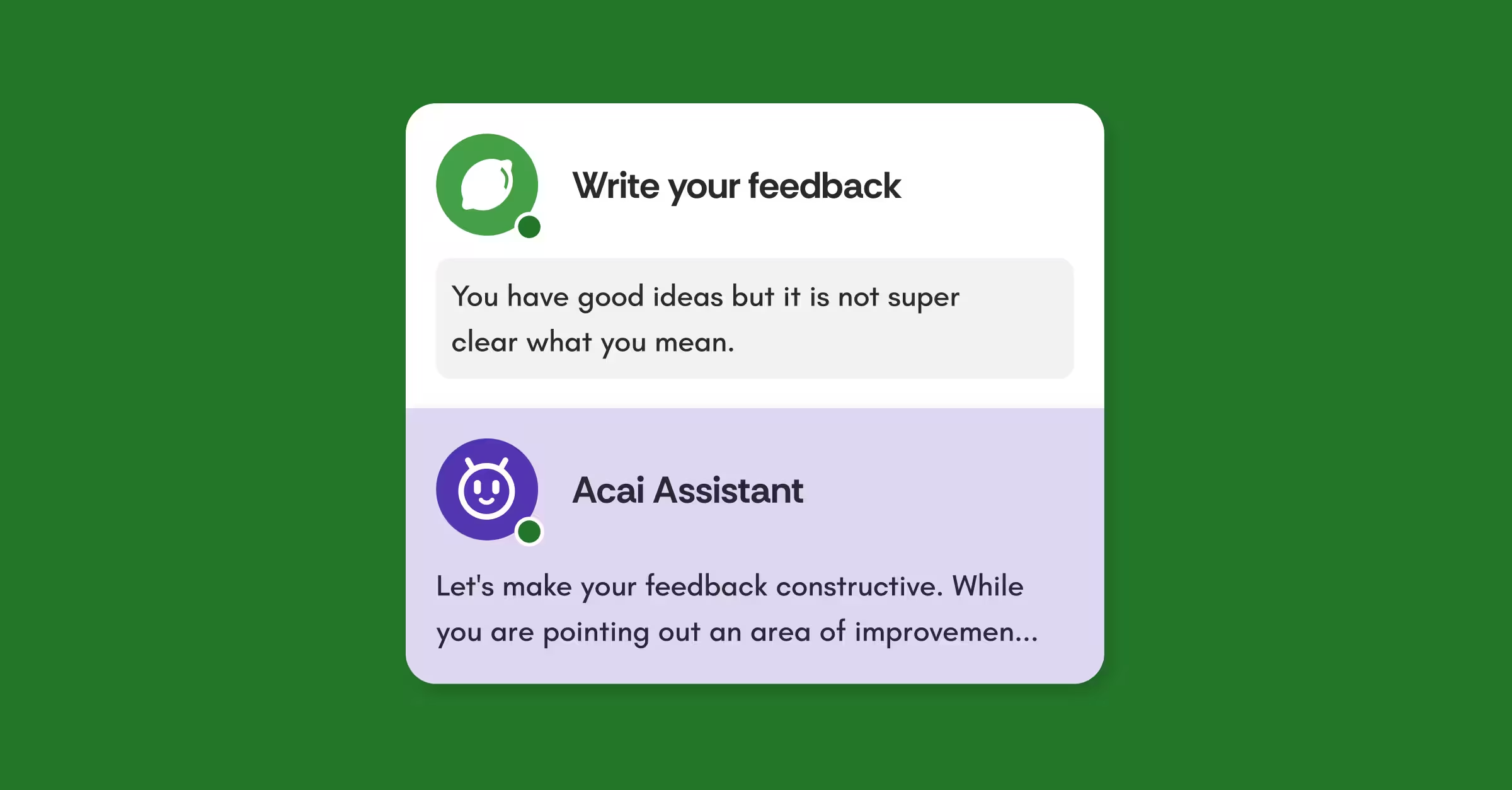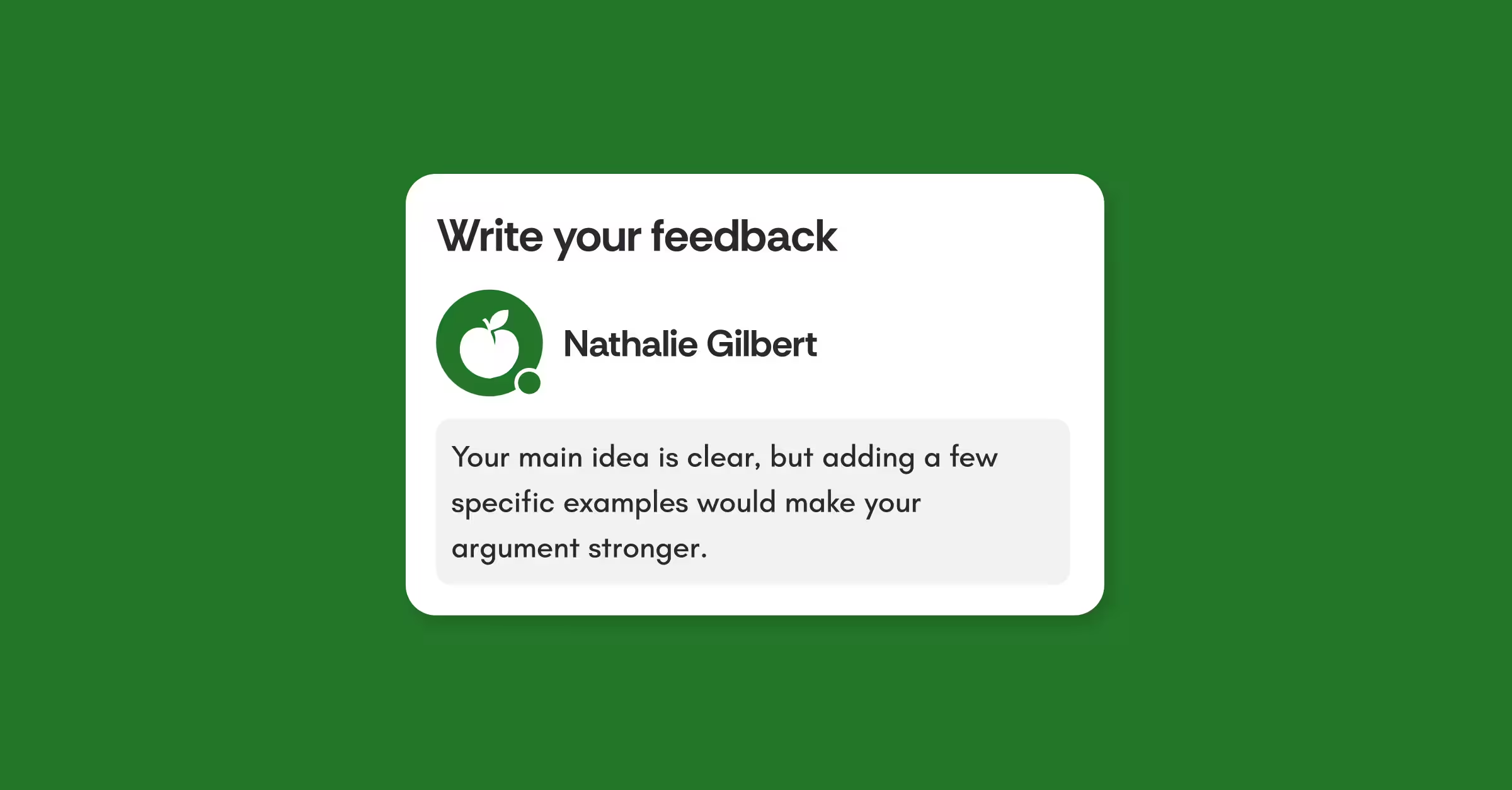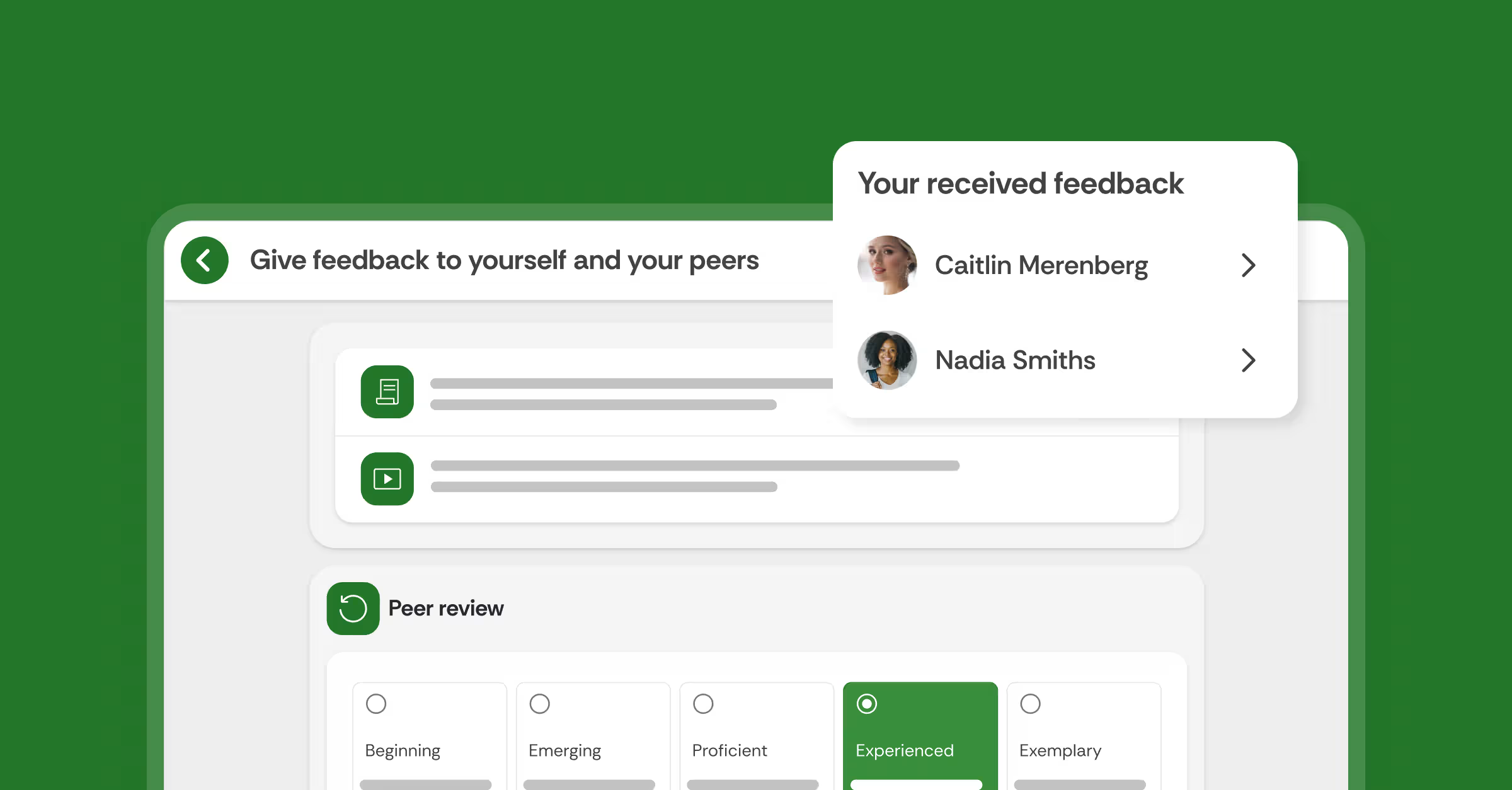inspirED Europe 2023 recap: 4 key learnings we explored
This past month on June 8th 2023, FeedbackFruits organized our annual conference inspirED, this time in-person in Europe
Follow us as we reflect on some of the captivating highlights and transformative discussions that defined the day.
With its broad focus, the conference welcomed sessions and discussions on a plethora of topics. Most of them, however, discuss assessment and feedback processes, creating inclusive learning spaces, building competency skills for the future, or largely providing an overview of their experience with using ed-tech tools in the classroom.

What do you get when you bring in higher education professionals from across Europe to discuss sustainable strategies for teaching and learning? You get unparalleled discussions on assessments, exhilarating takes on innovating learning, and a contagious ‘ready for change’ attitude.
This past month on June 8th 2023, FeedbackFruits organized the annual conference inspirED, this time in Europe. From the very beginning in 2021, the conference has designed itself as a space for innovative higher education professionals to gather and engage with the upcoming teaching and learning trends. Fostering this mindset, this year’s conference was organized in collaboration with the Vrije Universiteit Amsterdam, centring around the theme ‘Scaling Teaching and Learning in Higher Education: Sustainable Strategies for Student-centred Learning’. The swiftly changing student demographics coupled with the dynamic tech scenes among other exogenous changes require our perpetual momentum in embracing change, thus influencing inspirED Europe 2023’s theme. With the past few renditions having taken place online, this year marked the return of the in-person structure where higher education enthusiasts convened in Amsterdam to explore everything from feedback and assessment, inclusive learning to public value creation, and more! The charm of face-to-face interactions remained undefeated and added a whole new level of excitement and inspiration to the event, amplifying the goals and values of the conference.
“Discussing long term strategies that are sustainable for when the disruption happens”
Follow us as we reflect on some of the captivating highlights and transformative discussions that defined the day.
With its broad focus, the conference welcomed sessions and discussions on a plethora of topics. Most of them, however, discuss assessment and feedback processes, creating inclusive learning spaces, building competency skills for the future, or largely providing an overview of their experience with using ed-tech tools in the classroom.
1. Creating Authentic Assessment and Feedback Processes Rooted in Comparison

“Students are the protagonists of feedback processes” David Nicol, Suzanne McCallum- “Using active feedback to develop students’ critical thinking”
Shared by our keynote speakers David Nicol and Suzanne McCallum of the Adam Smith Business School at the University of Glasgow, the aforementioned statement captured the overarching focus of the conference- to create learning environments where students are at the centre and are actively shaping their educational experiences. The starting point for the discussion was understanding that “students are generating feedback all the time resulting in a different set of practices”.
Leading a discussion on inner and active feedback in the classroom wherein comparison underpins the feedback processes, two issues related to inner feedback that have not been addressed before:
- Firstly, how do we deal with the tension between wanting students to be independent, self-regulated learners while at the same time telling them what to do?;
- Secondly, how do we increase feedback at scale without increasing the instructor's workload?
Herein, they provided a novel perspective, sharing that comparison feedback processes have always existed. It is more a question of undertaking a mindset change where we can look at and work with the existing processes in a different, more productive way.
After the keynote set the stage, the following sessions continued the theme of developing sustainable strategies for effective learning and assessment.
Following this discussion of feedback, Yvonne Moore, Aby Osborne, and Lucy Noble of the University of Bath- shared their curriculum transformation journey and their goal to undertake an institutional shift towards more authentic assessment and feedback processes rooted in assessments of learning.

Acknowledging that “‘assessment and feedback are really at the intersection of teaching and learning”, transformative approaches to innovating them are a sustainable approach to scale up teaching while skirting change fatigue. Following such transformative approaches and focusing on clarity and consistency alongside working with a tool, they can ensure that their assessments encourage self-reflection and “capture the greater attributes of the future”.
2. Creating Inclusive Learning Spaces to Improve Learner Quality
Working at the intersection of all the aforementioned sessions, Richard Powers and Jo Huang of FeedbackFruits ran a thought-provoking interactive workshop on the Universal Design for Learning (UDL). Rooted in architecture studies, UDL aims to address the needs of all students, really focusing on “what do our learners need”. Unlike many other pedagogical strategies, the charm of the concept lies in its convenience. UDL can be summarized with its three “ERA” principles- engagement, representation, action and expression! A crucial element for effective inclusive design is prioritising student agency- it is not for educators to change students, but rather how they address students’ sense of belonging and to what degree we involve them in implementing more equitable solutions to their learning journey. Pursuing UDL, educators should be equipped to foster learner ownership. “It's not categorization of differences but a spectrum of diversity, that’s when it becomes inclusive”.
Drawing an image of what UDL implementation with FeedbackFruits’ tools can look like, Jo walked the audience through our Automated Feedback Coach Tool. Being able to provide real-time suggestions to improve student feedback quality, the tool fosters engagement along with action and expression by optimizing relevance, value, and authenticity along with guiding appropriate goal-setting.

Looking at the creation of inclusive spaces from a slightly different angle, we heard from Farshida Zafar and Ewoud de Kok in a panel discussion on public value creation and the role of edtech herein. Hearing from two speakers with a similar value system having undertaken rather different roles in improving the role ed tech created a very insightful experience. Both the speakers enthusiastically agreed that education has a massive twofold responsibility:
- to build competent skills that prepared them for tomorrow’s workforce;
- to equip them well enough with competent skills to make active decisions for a better society.
To sustainably undertake these goals, Farshida mentions the need for universities to be better spaces of inclusion and active collaboration. With universities having been built for resilience over change, our current system allows universities to enact little radical changes, making it beyond tough to address how we can sustainably create public values through education.
Adding to the paradigm, in today’s digital work, large tech corporations often take advantage of higher education institutions. This further limits how much change we can enact. How can we address this? Our CEO discusses the ultimate goal to introduce guided and standardised public and private partnerships that allow universities to foster public values and require edtech companies to respect the institutions’ interests.

3. Fostering Assessments and Learning Activities to Build Competency Skills for the Future

Samantha Pugh and Pam Birtill of the University of Leeds shared their journey toward inclusive assessment, aiming to develop a programmatic understanding of student abilities and create assessments that effectively defined a graduate’s skill set to others, and avoid having single points of failure while reducing stress. Their assessment strategy is centred around making “assessment accessible and inclusive for all students, with a digital-first approach to support diversity and efficiency”. This is done deeply in line with what is expected from future employers, any education providers, and other relevant institutions, thus pushing for learning alongside transferable competency skills for the future.
At Leeds, they have actively pushed for an increasingly programmatic understanding that goes beyond technical skills and rewards students who “integrate things successfully and combine learning from everywhere”, thus building more interdisciplinary, future-ready citizens.
In furthering these human-centred approaches, Irene Lona, of OsloMet presented her experiences with social annotation as a learning goal to improve students’ engagement with content, their critical thinking, and their 21st-century skill set. Discussing the changing student demographics, OsloMet’s use of social annotation to increase student engagement with readings has created a space that allows students to actively share their own perspectives with their peers in relation to what they are learning, The collaborative sense of this strategy switches up the questions we ask- “we always ask about the what, but rarely about the why of learning”.
Danny Scholten of the VU similarly aimed to improve students’ skill sets. So often, student skills are developed rather superficially, designed for them to only reach a single goal. By actively walking students along the skill development process, he discussed that they are more likely to focus on the process itself rather than simply the outcome, further honing their overall development. In the classroom, fostering active skill development requires specific instructions and enough time for students to respond, authentic assessment connected to one’s academic and personal context, coupled with time for feedback and reflection. Undertaking this, Danny utilized the ALACT model-
- action;
- looking back on the action;
- awareness of essential elements
- create alternative methods of action
- trial (eg. new action)
Following this model in his teaching, Danny reflected that it allowed students to think critically and take on a more action-focused approach relating to their skill levels and development.

4. Collaboration with Students to Improve Technology Adoption
Building on innovative approaches, we heard from Nathan Gilder, a Communication Science student, and Esther Schagen, a Senior Lecturer at the VU. Their session focused on exploring the many hidden conditions that students need to undergo before successfully using digital tools in an individual setting. Discussing their case study of peer review in a core bachelor’s course, they suggest a strategy to make the most of digital tools - by introducing an online tool in an offline setting. This leads to favourable outcomes such as:
- Higher student engagement/acceptance;
- Better developed peer-review skills;
- Less teaching time is spent on formative assessment grading.
HEC Paris representatives- Adrien Painturier, Delphine Kossmann, and Marie Valentin- introduced their business schools’ use of technology and how it has helped them address forthcoming education challenges. Combining FeedbackFruits tools along with others such as Miro or Mentimeter, resulted in what can best be described as a ‘superhuman blackboard’. In discussing their strategies, they shared key takeaways for successful synchronous and asynchronous learning.
Wrapping Up an Insightful Day
All speakers shared their experiences with and proven solutions to the challenges we face in higher education at the moment and varied curveballs coming our way. Yet rooting their work in novel approaches such as social annotation or UDL to address low engagement, the AI question mark, restrictive study environments, and more, the day allowed us to have engaged discussions on tangible solutions.
The conference also boasted itself as a platform for community engagement and networking. Attendees enthusiastically engaged with one another outside Theatre A105 as well. Alongside, they had a choice to partake in a game of bingo or design their own ‘learning journey’ among other activities. The value of building connections and fostering collaborations was evident throughout the day.















![[New] Competency-Based Assessment](https://no-cache.hubspot.com/cta/default/3782716/interactive-146849337207.png)










